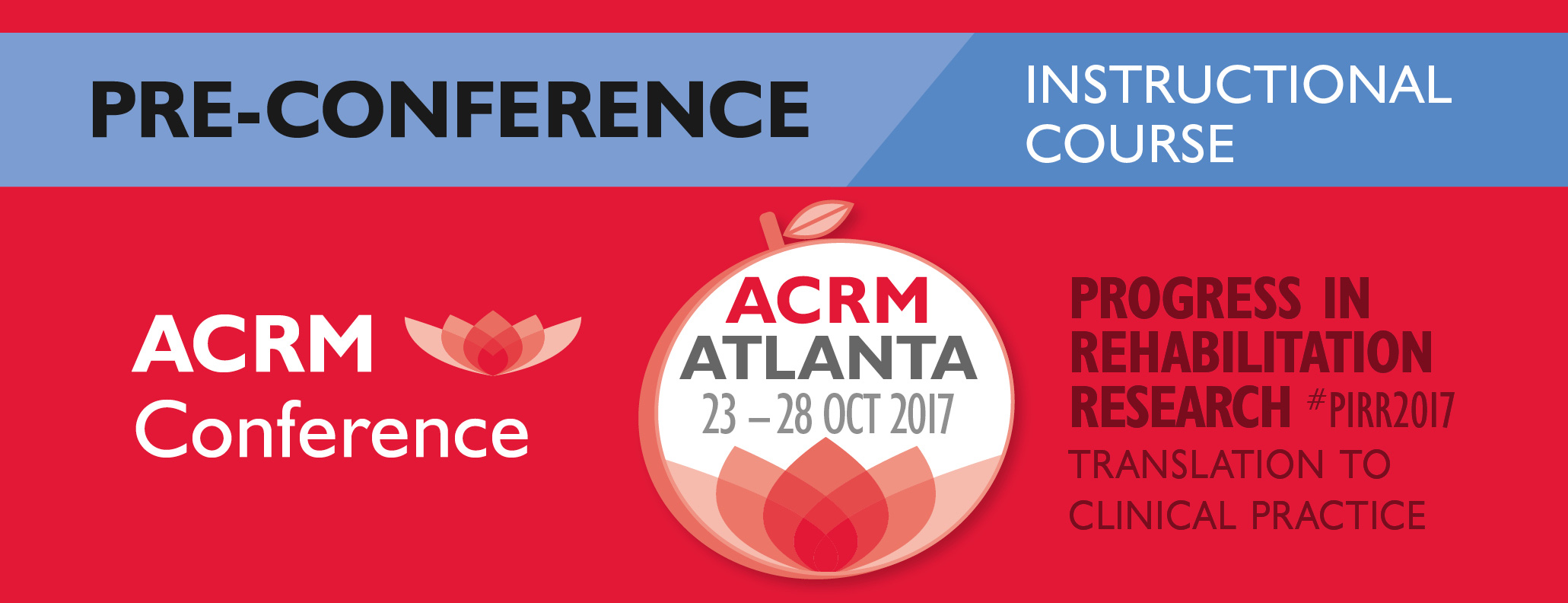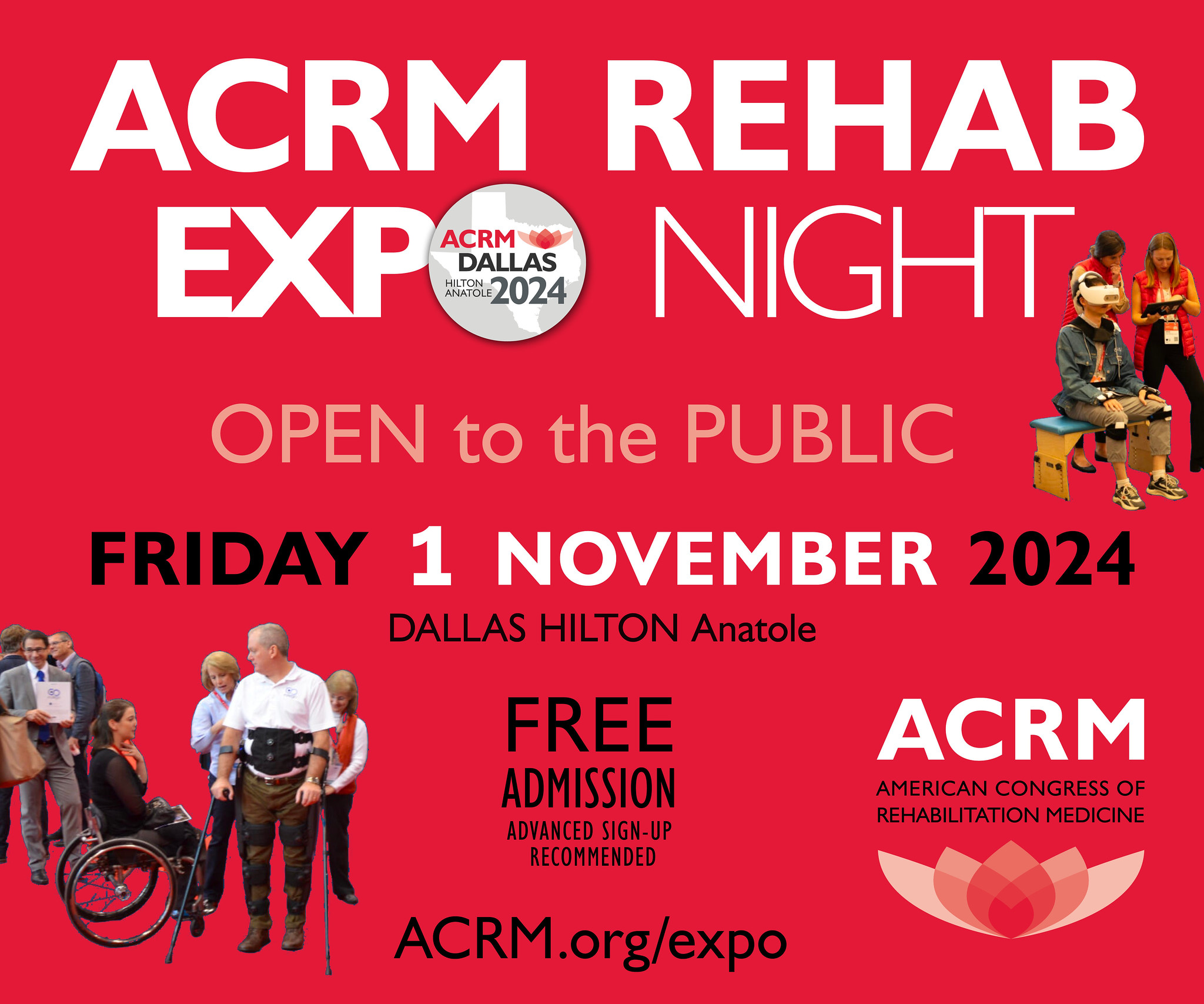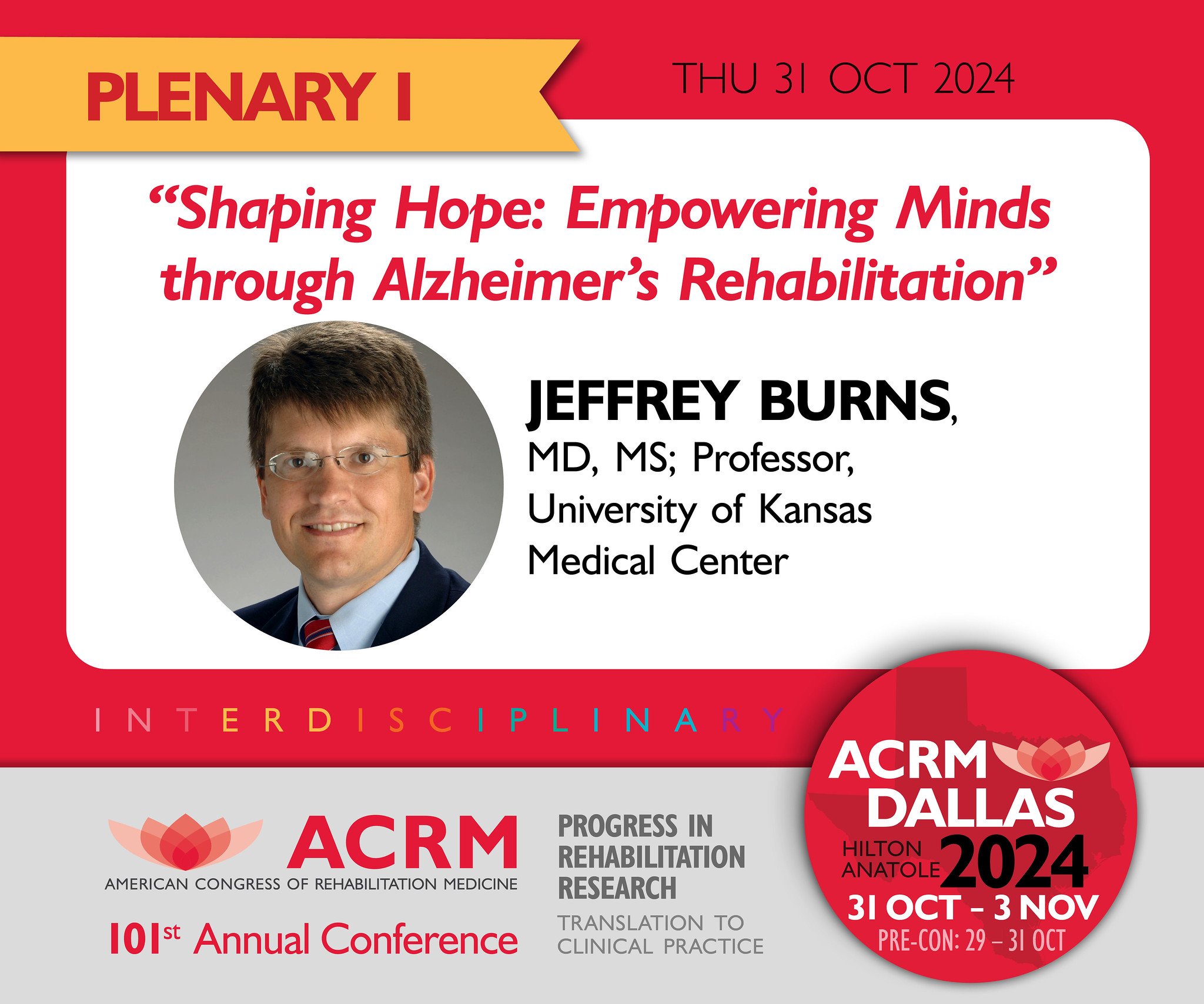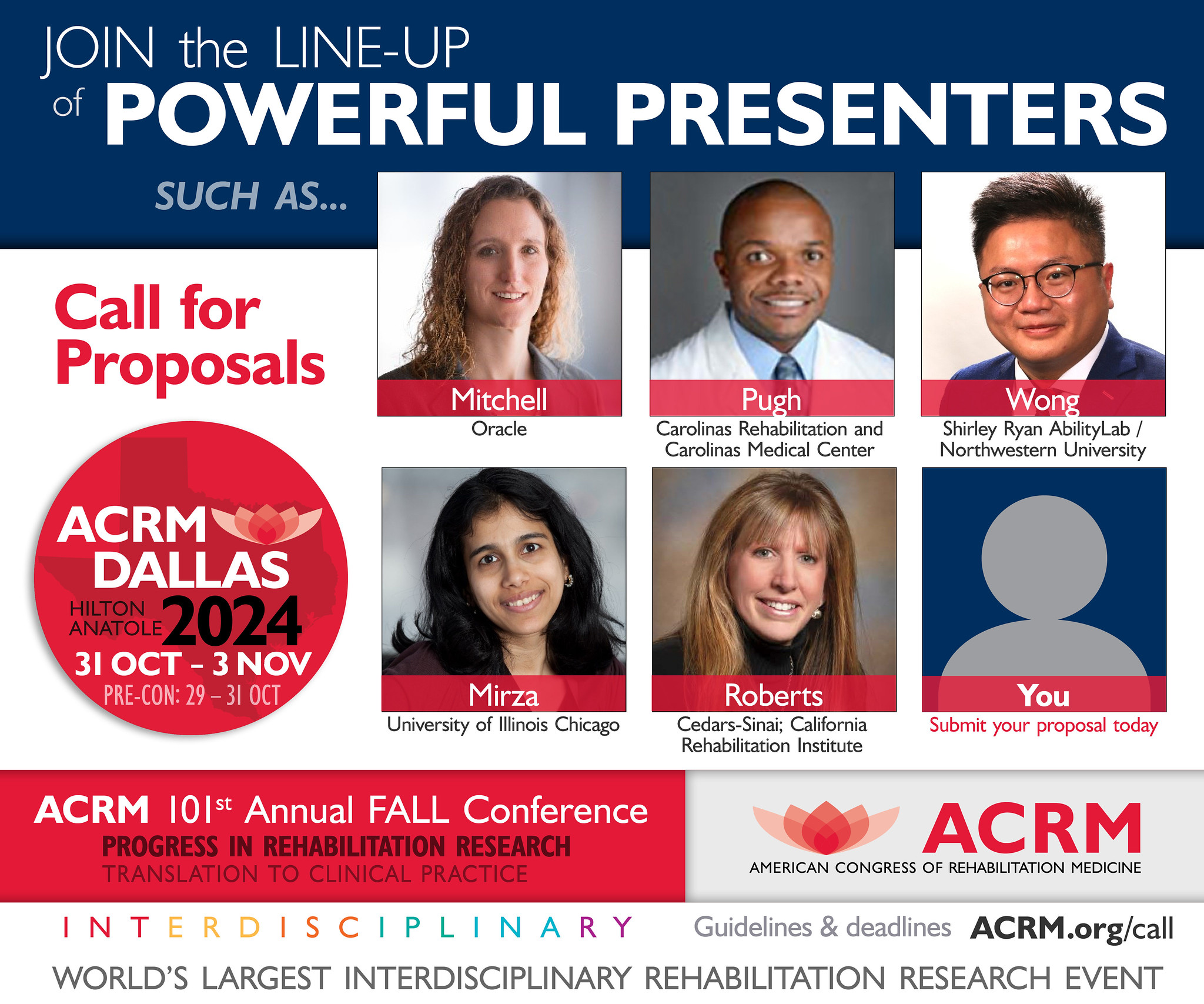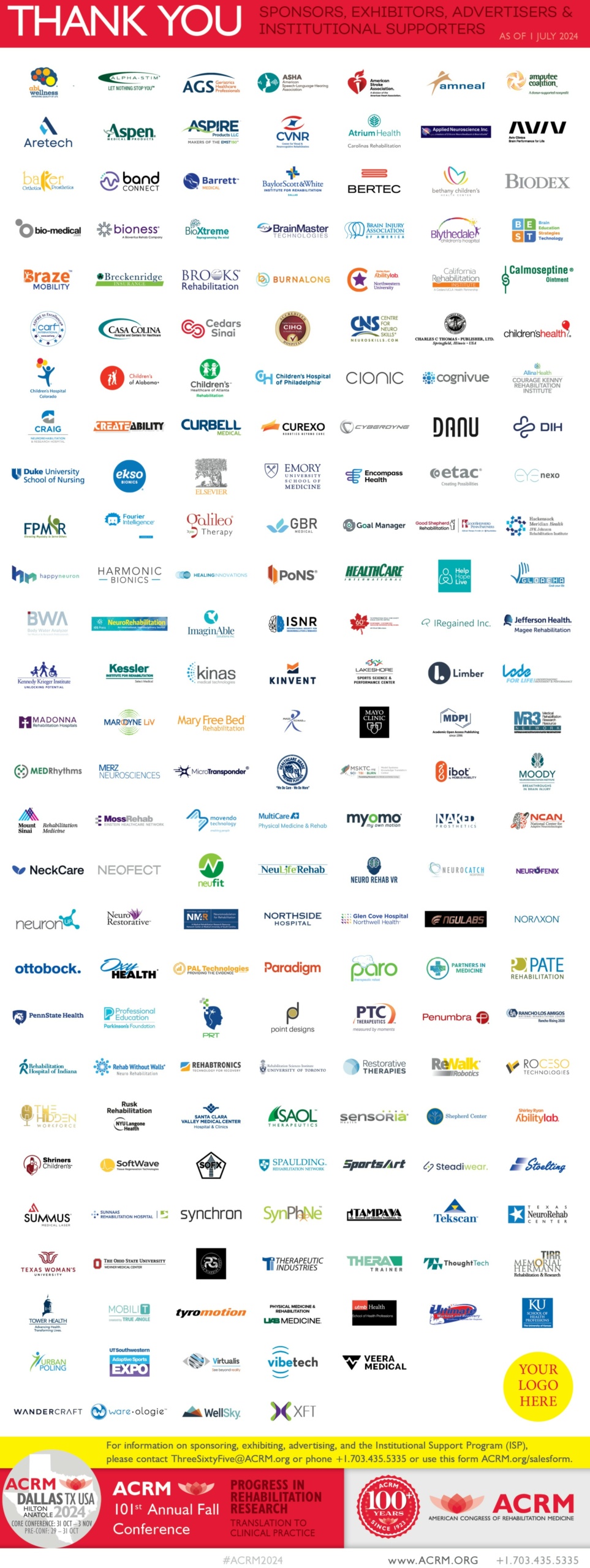WED 25 OCT // 8:30 AM – 12:30 PM
This course supported by Thought Technology, Ltd.
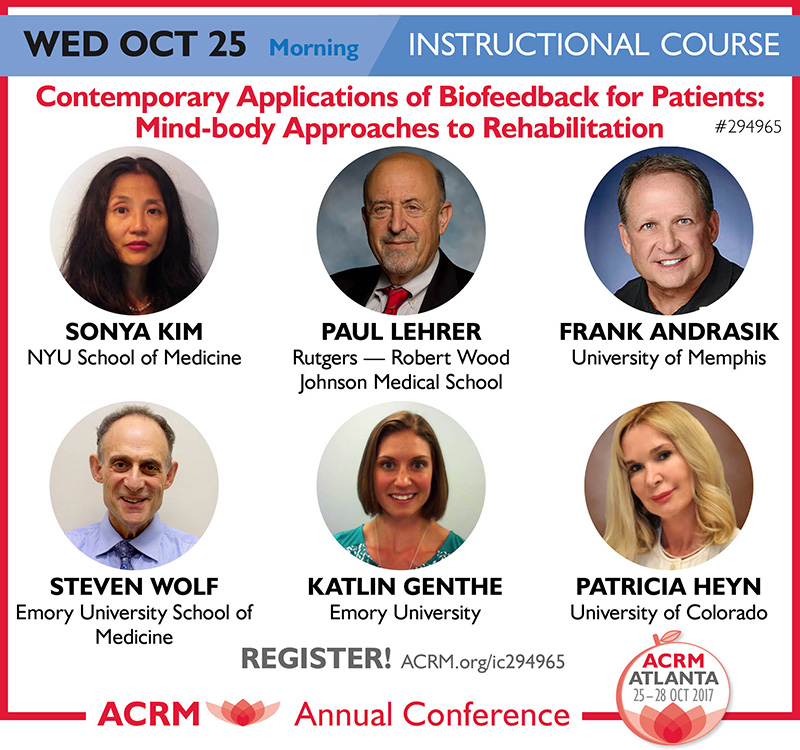
See this course in the Online Program & Scheduler here >>
Plan and build your schedule & connect with other attendees & presenters!
*THIS COURSE INCLUDES a BOXED LUNCH
Primary Content Focus: Complementary Integrative Rehabilitation Medicine
Secondary Content Focus: Brain Injury
Tertiary Content Focus: Stroke
Mounting evidence points to the efficacy of biofeedback for the treatment of various disorders, including anxiety, depression, headaches, symptoms post-stroke and acquired brain injury, and pain. Biofeedback is a process by which sensors are used to provide real-time, quantitative information to aid a therapeutic intervention. As an introduction to the psychophysiological methods of biofeedback, this course will explore how biofeedback applications have improved health and wellness across varying disorders. We will also present preliminary results from our ongoing research involving the use of biofeedback to restore the deficit in paretic propulsion post-stroke.
LEARNING OBJECTIVES
- Describe the characteristics of resonance in heart rate variability (HRV) stimulated by biofeedback and how it reflects general health
- Discuss the integration of biofeedback and rehabilitation medicine to improve chronic pain
- Assess the use of biofeedback in post-stroke rehabilitation
- Identify limitations in the biofeedback treatment studies that warrant further consideration
- Utilize biofeedback protocols in home and/or clinical settings
PRESENTERS
Sonya Kim, PhD, CRC, BCB
NYU School of Medicine Department of Neurology and Department of Rehabilitation
Paul Lehrer, PhD
Rutgers — Robert Wood Johnson Medical School
Frank Andrasik, PhD, FAHS
University of Memphis, Department of Psychology
Steven Wolf, PhD, MS, FAPTA, FAHA, FASNR
Emory University School of Medicine, Department of Rehabilitation Medicine, Division of Physical Therapy
Trisha Kesar, PT, PhD
Emory University School of Medicine, Department of Rehabilitation Medicine, Division of Physical Therapy
Katlin Genthe, PT, DPT
Emory University
Patricia Heyn, PhD, FGSA, FACRM
University of Colorado Anschutz Medical Campus
BIOS

Sonya Kim, PhD, is a research scientist at the NYU School of Medicine where she has a joint appointment as a clinical instructor in the Neurology and Rehabilitation Medicine departments. Dr. Kim is an early career clinical psychologist, a certified rehabilitation counselor and has board certification in biofeedback. As the pioneering force behind the use of heart rate variability biofeedback to improve emotional regulation for individuals with severe and chronic brain injury, Dr. Kim’s major research interests include cognitive deficits in multiple sclerosis, chronic TBI, and exploring mechanisms and interventions that help rehabilitate functioning post-brain injury. Her research seeks to demonstrate that the pursuit of health requires a multidimensional approach that can better allow for and respond to the individual complexities inherent in a patient’s care. Dr. Kim has examined the ways in which patients’ perspectives and beliefs, as well as those of their families, can play an important role in shaping clinical treatment. She has served as PI in a grant-funded study to develop a post-traumatic growth scale in partners of individuals with multiple sclerosis, and has published and presented on the importance of lived experience as a framework for clinical care and research. Dr. Kim’s work focuses on finding effective ways to hear and respond to patients’ stories in order to design treatment interventions that respond more directly to patients’ unique needs and strengths.
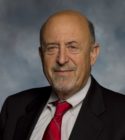
Paul Lehrer received his doctoral degree in clinical psychology at Harvard University, and has been working at Rutgers University since 1970. He has been doing clinical practice and research on applied psychophysiology for over 50 years, and has published over 100 papers on the topic. He is senior editor of Principles and Practice of Stress Management, which gives definitive descriptions and research reviews of most techniques used in this field. He has studied progressive relaxation methods under Edmund Jacobson, and biofeedback under David Shapiro. For the past 25 years he has specialized on heart rate variability biofeedback: its physiological mechanisms and clinical effects. He also has published the most widely used procedural manual for this method, and has given workshops and lectures on the topic throughout the world. He has served as president of the AAPB, and has received its Distinguished Scientist Award.
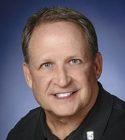
Dr. Frank Andrasik presently serves as a Distinguished Professor and Chair, and Director, Center for Behavioral Medicine, Department of Psychology, University of Memphis, TN. Dr. Andrasik has published over 270 articles and chapters and has delivered numerous presentations in the US and abroad. His work has focused on a variety of topics within the area of behavioral medicine, chiefly chronic pain, headache, and stress disorders, basic and applied psychophysiology, and more recently polytrauma in military populations and health disparities. He has co-authored or co-edited 8 texts for professionals (one of which was translated into German and Spanish, with a two-volume set translated into Korean). Dr. Andrasik has been the recipient of multiple federal and foundation research grants, including a Research Career Development Award from the National Institute of Neurological Communicative Disorders and Stroke (now NINDS) at the start of his career, serving as PI or Co-PI for grants totaling approximately $7 million to date. He has participated as an external reviewer and Chair of several special emphasis panels in the grant review process at a number of agencies (NIH, NIMH, NASA, NATO, USAMRMC, etc.) and as a member of the Risk, Prevention and Health Behavior Study Section (formerly known as the Behavioral Medicine Study Section). He was the 1990 recipient of The University of West Florida’s Distinguished Research and Creative Activity Award, the 1992 recipient of the Association for Applied Psychophysiology and Biofeedback’s (AAPB) Merit Award for Long-Term Research and/or Clinical Achievements, the 2002 recipient of AAPB’s Distinguished Scientist Award, and the 2006 recipient of The University of West Florida’s University Scholarly and Creative Activities Award. Dr. Andrasik has considerable journal editing experience, currently serving as Editor-in-Chief for Applied Psychophysiology and Biofeedback (formerly Biofeedback and Self-Regulation) since 1995 and Associate Editor for Cephalalgia since 2013. In the past he served as Editor-in-Chief for Behavior Therapy, Associate Editor for Behavior Therapy and Biofeedback and Self- Regulation, and a member of the editorial board for other leading behavioral journals. He continues as a board member for several journals and regularly reviews for others.
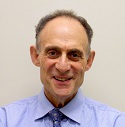
Dr. Steven Wolf explores novel interventions to improve extremity use in patients with stroke as well as mechanisms of cortical reorganization and inter-joint coordination associated with such changes. Within the past 21 years, he has led several NIH funded clinical trials governing this concept. More recently, his lab has been emphasizing clinical measures of neural plasticity for interventions designed to improve posture in older adults or stroke survivors as well as to improve limb function in the latter group through the addition of electrophysiological (including TMS) and imaging studies. Their newest studies involve use of robotics and mixed reality, both of which have telerehabilitation capabilities and are directed toward home-based treatment post-stroke. He also studies changes in upper extremity movement following stroke using home base robotic and telerehabilitation interfaces that complement our mixed reality studies. While his teams’ studies with stroke survivors have addressed primarily efforts to improve motoric function within the upper extremity, they have also done extensive work in monitoring lower extremity muscle activity to determine the extent to which selective feedback can enhance ambulation amongst stroke survivors. In January 2014. Dr. Wolf was asked to serve as co-chairman of the Recovery and Rehabilitation Working Group of the newly NINDS funded Stroke Network in which Emory is one of 25 sites. This honor provides further opportunity to facilitate recruitment and retention strategies for clinical trials. Most recently his team has been funded to participate in a multisite trial (NIH U01 NS091951) on use of telerehabilitation to facilitate upper extremity functional return within 90 days after stroke. This study, led by Steven Cramer, MD, is the first rehabilitation and recovery project funded through the Stroke Network. This work is compatible with his experiences in a successful, home-based robotics study (RC3 NS070646-01) recently completed in collaboration with colleagues at the Cleveland Clinic that targeted chronic stroke survivors. His experiences in training grants is extensive. He was co-PI of a T-32 (HD07504) for pre-doctoral students with rehabilitation backgrounds. He has been a mentor for the entirety of the 10 years of the ERRIS training grant and its successor, Training in Grantsmanship in Rehabilitation Research (TIGRR). He is also co-PI for the second 5 year round of our T-32 (HD055931), a collaborative effort between Georgia Tech and Emory to train movement scientists with a focus on prosthetics and orthotics.
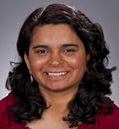
Dr. Trisha Kesar is an Assistant Professor at the Department of Rehabilitation Medicine at Emory University and the Director of the Emory Motion Analysis Laboratory. Dr. Kesar received her undergraduate degree in Physical Therapy from Post Graduate Institute of Medical Education and Research, Chandigarh, India. She earned a Master’s and Phd in Biomechanics and Movement Sciences from University of Delaware. Her post-doctoral training focused on stroke gait rehabilitation and the use of non-invasive stimulation techniques to evaluate corticospinal plasticity. Dr. Kesar’s research goal is to develop novel post-stroke gait rehabilitation interventions that are based on an in-depth understanding of the neuroplasticity, biomechanical, and motor learning mechanisms underlying gait and gait training. Ongoing projects in Dr. Kesar’s lab are investigating the time course of changes in gait biomechanics, walking function, and corticospinal excitability during paradigms that mimic clinical post-stroke gait retraining. Some of the tools and techniques that Dr. Kesar employs in her research include 3-dimensional kinematic and kinetic analysis of human motion, electromyography, functional electrical stimulation, transcranial magnetic stimulation, and real-time gait biofeedback. Dr. Kesar has an ongoing NIH-funded career development award to develop and test neurophysiologic techniques for evaluation of corticomotor excitability, spinal excitability, and dose-response time course during stroke gait rehabilitation. Ongoing studies in her laboratory are focused on demonstrating the feasibility and short-term effects of real-time gait biofeedback as a gait training tool. Dr. Kesar has over 25 peer-reviewed publications and over 45 conference presentations on these research topics.

Katlin Genthe received her Bachelors of Science in 2009 and her Doctorate of Physical Therapy in 2012 from University of Wisconsin – La Crosse. During her time there, she worked at the Strzelczyk Clinical Biomechanics Laboratory focusing on mechanism of ACL injury in female athletes. Dr. Genthe also participated in a three month clinical rotation at Cincinnati Children’s Sports Medicine Biodynamics Center focusing on collegiate distance running mechanism of injuries. Dr. Genthe is currently a neurological physical therapy resident at Emory University. As part of her residency, she is participating in a research project at the Emory Motion Analysis Laboratory investigating the effect of real-time gait biofeedback on post-stroke gait biomechanics.

Dr. Patricia Heyn has distinctive knowledge on how to synthesize and evaluate the quality of the evidence to provide guidance on current physical medicine issues to improve research and methodology, and in conducting health services and implementation research to promote the best evidence-based practices in rehabilitation medicine. Her work on the effects of exercise training for individuals with dementia is highly cited and well-recognized in the rehabilitation field. Dr Heyn has several ACRM leadership and mentorship roles. She is also an important faculty and program member for the NIH/NIDKK Network of Minority Health Research Investigators (NMRI) and the Gerontological Society of America. Her investigations include the associations between exercise, mobility, metabolic syndrome, cardiovascular risk factors, and cognitive function. She has been involved in several international academic programs and her research was featured in La Naci????Argentina’s leading newspaper and is frequently cited in various media such as HealingWell.com, WIKIBOOKS, ABC 7 News and the Alzheimer’s Association.
ACRM Annual Conference, Progress in Rehabilitation Research (PIRR#2017)
CORE: 25 – 28 OCT 2018 // HILTON ATLANTA, USA // PRE-CONFERENCE 23 – 25 OCT
REGISTER ONLINE HERE or Register by Phone: +1.703.435.5335
 |
 |
 |
 |


